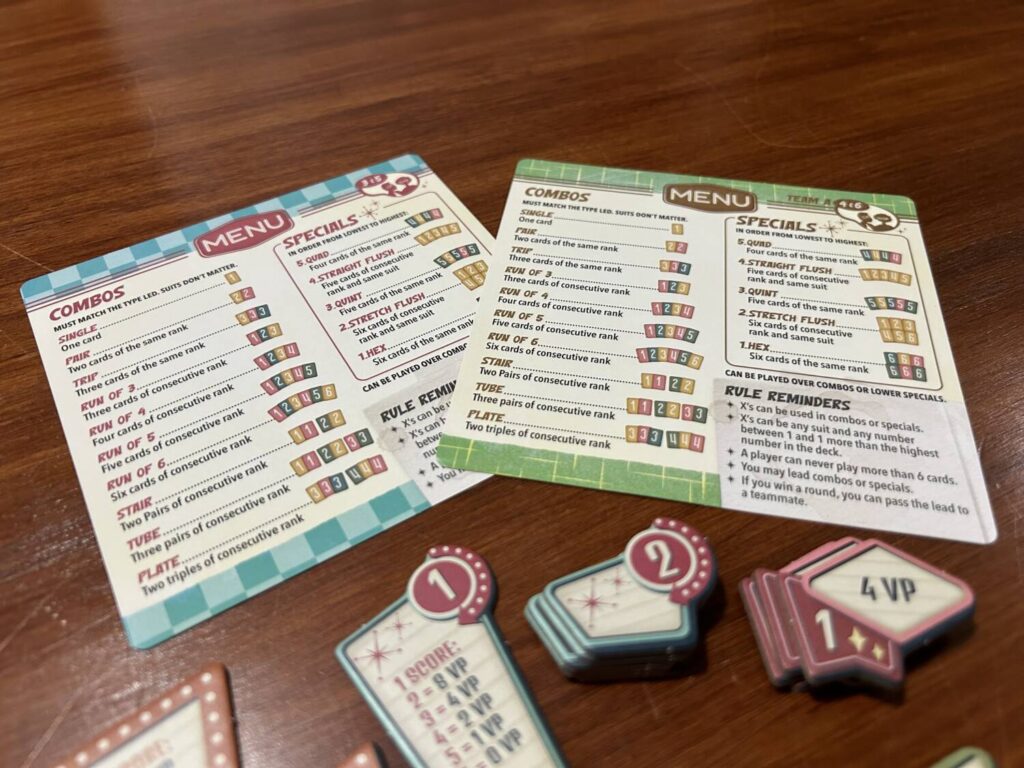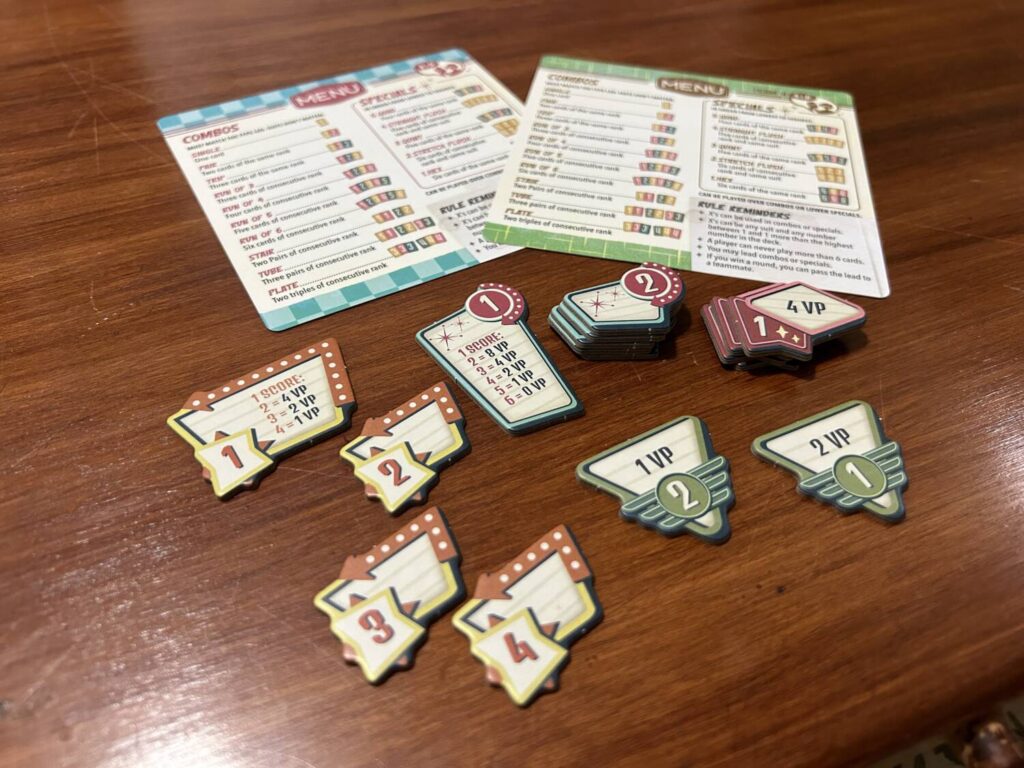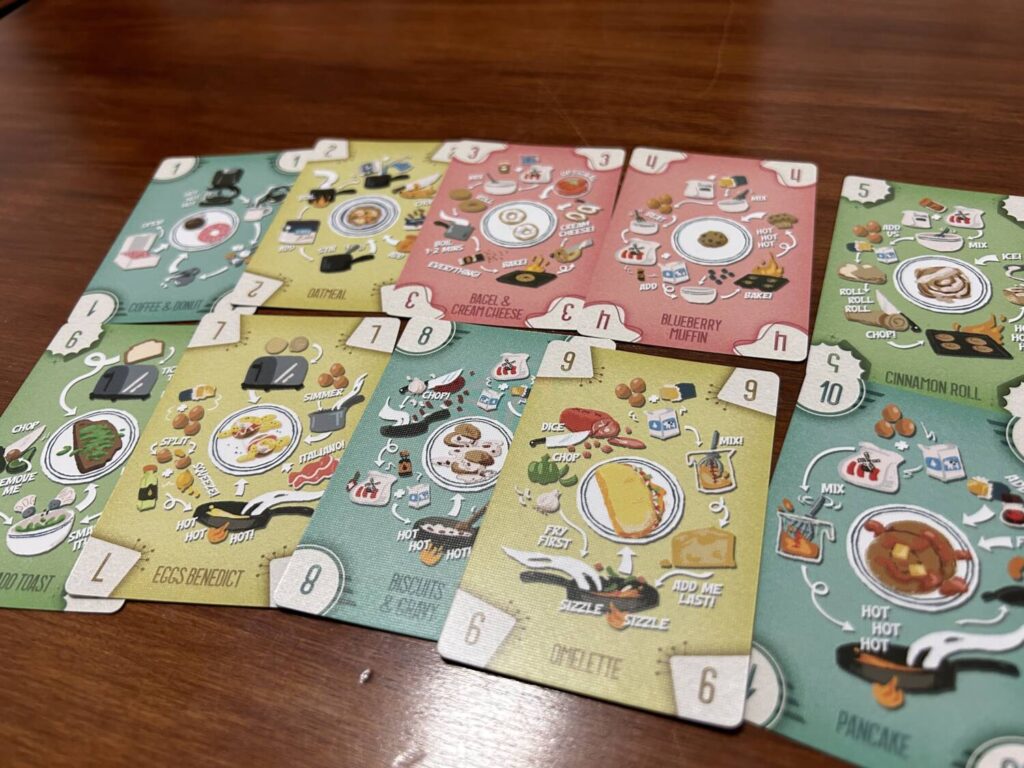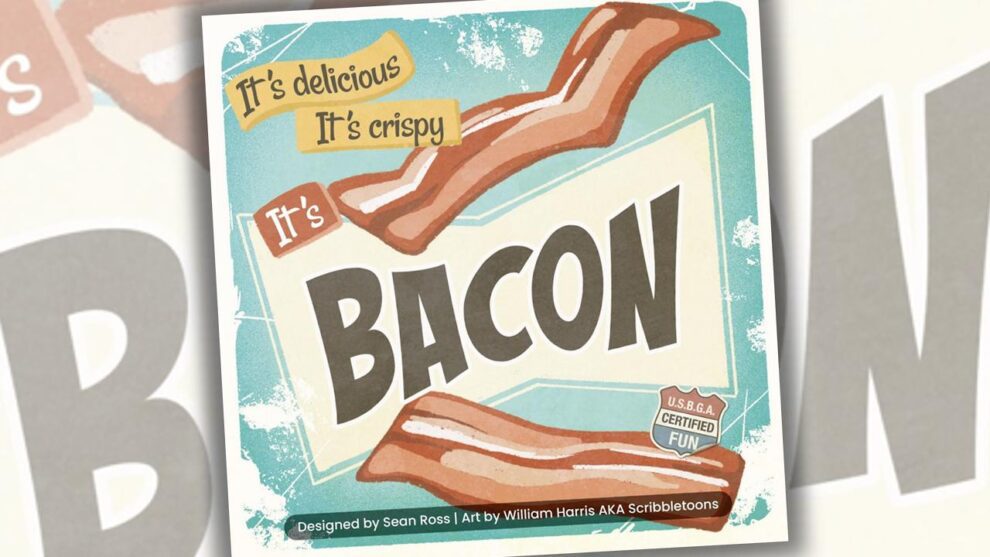Disclosure: Meeple Mountain received a free copy of this product in exchange for an honest, unbiased review. This review is not intended to be an endorsement.
Bacon is a climbing game, a genre of card game in which the goal is to empty your hand by playing increasingly powerful sets of cards. The specifics change from design to design, but the basic principle stays the same: if you play a pair of 2’s, I can beat that with a pair of 3’s.

The most popular recent example of a climbing game is surely Scout, one of my favorite games of the last few years, which simplifies the types of sets you can play: a straight or any number of the same card. Bacon is drawing from an older well than Scout, though, reaching back to the far off year of 1991 and the greatest of all climbing games, Tichu.
Tichu is a thorny little masterwork, somewhat difficult to learn and incredibly hard to get good at. The scoring system is obtuse, there are four special cards that have massive strategic implications, and, unlike Scout, the type of set you can play is locked in for the duration of a trick. If I play a lone 2, you could have an eight-card straight in your hand, but you’re not going to get to play it right now. Tichu and Scout take opposite philosophical approaches: Tichu puts remarkably few restrictions on what you can do, but that leaves you to fend off the overwhelming feeling that comes with so many permutations.

Bacon is, and I do not mean this by any means to be a knock, Tichu for Dummies. Bacon takes the same set rule—once the first group of cards is down, players are restricted to playing that kind of set—and adds wild cards to each player’s hand, giving everyone a little more flexibility. There are also Specials, a series of trump sets, which can pre-empt any of the standard sets. Unlike Tichu, whose scoring system introduces all variety of nuance, Bacon also simplifies your goal: get rid of your cards.
In the individual play version of Bacon, each player scores points based on when they get out. The earlier, the better. In the team version, the first player out enables their team to score points, which will depend on when their teammate(s) get(s) out. The other team cannot score for this round. The game as a whole ends once one individual or one team crosses a predetermined threshold.
Stripping Tichu of its thorns is an interesting—and revealing—experiment. Bacon feels flat, a little too rounded at the corners. The number of Specials on the (literal) menu is too high. Players can swoop in at any time, cutting a lot of the tension and intentionality that surrounds choices in the latter half of a round of Tichu. Bacon is a more inviting game, a sillier and lighter game, but it also doesn’t suck you in. Unlike Scout or Tichu, games that can preoccupy you with thoughts of what you could have done differently, Bacon slides amiably by.












Add Comment